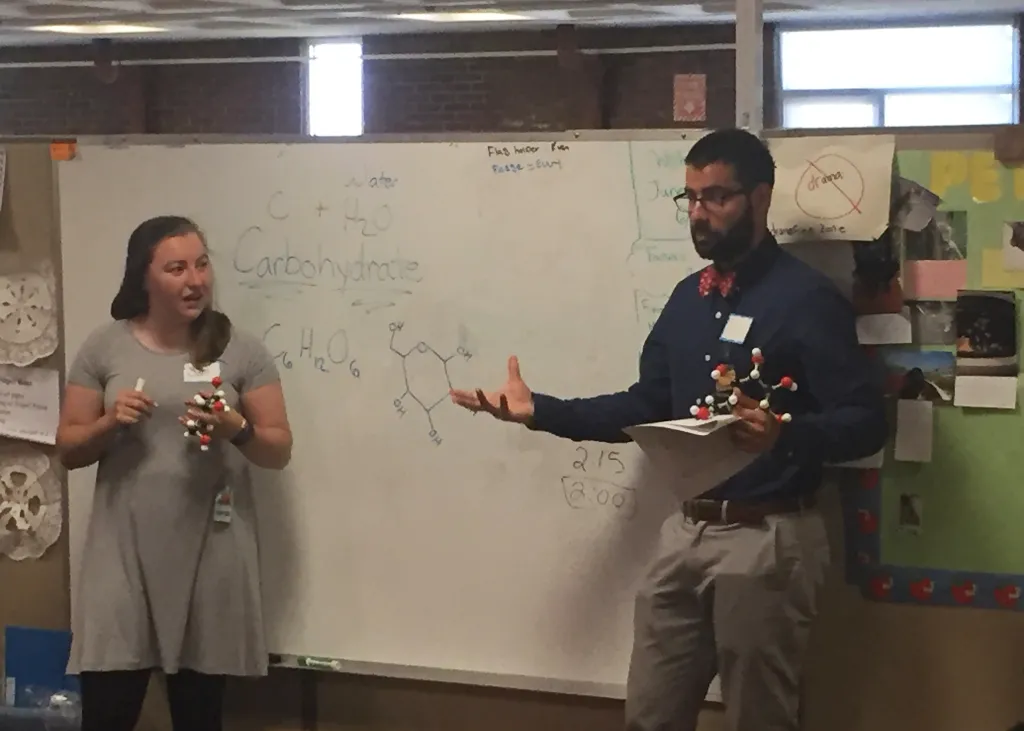UNE students and faculty lead NSF-funded STEM program for Reiche Elementary School students

Funded by a grant from the National Science Foundation, students and faculty from the University of New England have used innovative technology to teach the fundamentals of chemistry at Portland’s Reiche Elementary School.
UNE undergraduate students Samantha Mansberger and Hanna Sihler; pharmacy student Bruno De Maria; and Ph.D. student Beth Whitmore taught two one-hour lessons in three fifth grade classrooms at the elementary school, sharing their enthusiasm for science and discussing career pathways in the STEM fields.
Through the program, Reiche School students were introduced to the atomic theory of matter by means of a tactile and visual approach. Using molecular modeling kits, students learned how to construct molecules using colored balls and sticks, representing atoms and bonds. In the second component of the program, students used laptops to view virtual 3D chemical structures. This tool enabled students to observe larger and more complex molecules, such as glucose.
“UNE is dedicated to innovative education as a way to teach elementary school students about chemistry and STEM fields,” said Olgun Guvench, M.D., Ph.D., associate professor, chair of the Department of Pharmaceutical Sciences and program lead. “The goal of the program is to expose younger students to science and get them excited. By introducing STEM skills at a younger age, students will be prepared early on for these fields, allowing them to develop solid foundations.”
“Personally, I love being able to share my love of science with others,” said Samantha Mansberger (Medical Biology, ’18). “My favorite part is seeing them problem solve and work together to figure out the answers to a question by using the tools we used earlier in the lesson. I have seen great team work from students of all different skill levels, which is something we can all learn from.”
“[The students] love using model kits, building and getting assigned different jobs,” Mansberger continued. “Since the students are broken up into small groups for the lessons, they’re able to receive more individualized attention, keeping them engaged and focused.”
To learn more about the University of New England’s College of Pharmacy, visit www.une.edu/pharmacy
To apply, visit www.une.edu/admissions

